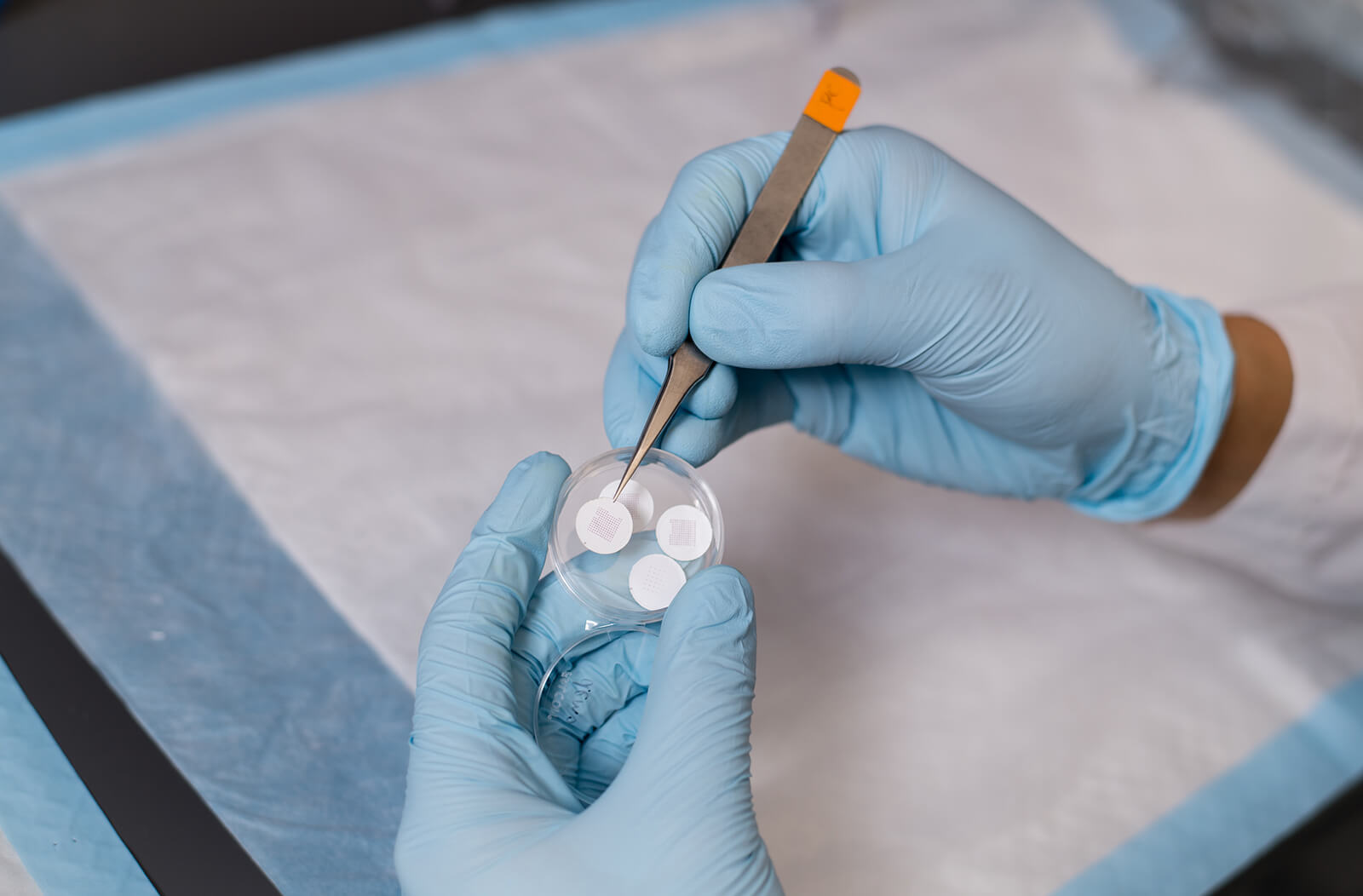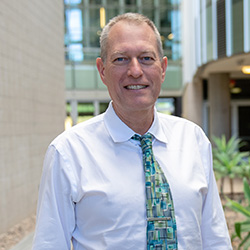
Center for Applied NanoBioscience and Medicine Hosts International Pharmacy Students to Assist with Research

Frederic Zenhausern, PhD, MBA, professor and director of the Center for Applied NanoBioscience and Medicine, is using his international connections to host pharmacy students from Switzerland in his Phoenix research lab.
The partnership between the School of Pharmaceutical Sciences at the University of Geneva in Switzerland (UNIGE) and the Center for Applied NanoBioscience and Medicine (ANBM) at the University of Arizona College of Medicine – Phoenix started three years ago, following Dr. Zenhausern’s appointment as an adjunct professor at the Geneva university’s School of Pharmacy.

The program is meant for master’s degree candidates seeking a pharmaceutical degree and are interested in medical research.
“Typically, these are students with a very strong background in chemistry and pharmacy, but they don’t have a lot of biology training,” Dr. Zenhausern said, “so, by joining the center, they find value in our research that pertains to the interaction of drugs or treatments with a biology aspect.”
Pharmacy students at the University of Geneva must complete 20-25 weeks of research as part of their master’s degree program requirements. The program is coordinated by Muriel Cuendet, PhD, associate professor of Pharmacognosy at the University of Geneva, whose research focuses on identifying plant extracts and natural products with anti-cancer activity.
Dr. Zenhausern saw the research requirement as an opportunity to allow for international and interdisciplinary research collaboration. Each year, the program accepts one student from the University of Geneva. The master’s candidate typically trains at the Phoenix lab from June to November.
Jerome Lacombe, PhD — assistant professor in the center, as well as in the Department of Basic Medical Sciences — participates in the scientific and experimental design of the projects and supervises the students in the laboratory. The Arizona team also performs joint research to explore potential natural products as radio-sensitizing drugs with the team at the University of Geneva, in partnership with Leslie Gunatilaka, PhD, professor at the University of Arizona’s Natural Products Center.
A second research project with a world renowned analytical chemist, Jean-Luc Veuthey, PhD, professor and vice provost at the University of Geneva, led to the development of a super-critical fluid extraction system to prepare plant scaffolds for tissue engineering. As the first graduate student to participate in the exchange program, Laetitia Meli was involved in researching compounds in the same family as Withaferin A — a plant compound demonstrated as a potential anti-cancer drug.
This year, Sophia Kardunsky helped build another platform that used a plant scaffold by removing all the cells from the plant by super-critical fluid extraction and then filling it with human cells. The student studied a skin model for the treatment of melanoma.
This project, Dr. Zenhausern said, is meant to reduce the need for animal models in pre-clinical research.
Dr. Zenhausern hopes to secure philanthropic funding from corporate donors, so that the center can accept more than one student a year and open the opportunity to PhD students. One possible avenue is working with pharmaceutical companies and other medical organizations, he said.
“The benefit for the college is international collaboration, plugging in a network of people that can do biomedical research that can add translational value,” Zenhausern said.
About the College
Founded in 2007, the University of Arizona College of Medicine – Phoenix inspires and trains exemplary physicians, scientists and leaders to advance its core missions in education, research, clinical care and service to communities across Arizona. The college’s strength lies in our collaborations and partnerships with clinical affiliates, community organizations and industry sponsors. With our primary affiliate, Banner Health, we are recognized as the premier academic medical center in Phoenix. As an anchor institution of the Phoenix Bioscience Core, the college is home to signature research programs in neurosciences, cardiopulmonary diseases, immunology, informatics and metabolism. These focus areas uniquely position us to drive biomedical research and bolster economic development in the region.
As an urban institution with strong roots in rural and tribal health, the college has graduated more than 1,000 physicians and matriculates 130 students each year. Greater than 60% of matriculating students are from Arizona and many continue training at our GME sponsored residency programs, ultimately pursuing local academic and community-based opportunities. While our traditional four-year program continues to thrive, we will launch our recently approved accelerated three-year medical student curriculum with exclusive focus on primary care. This program is designed to further enhance workforce retention needs across Arizona.
The college has embarked on our strategic plan for 2025 to 2030. Learn more.